FASCIST MUSIC
 Ah, the late Olivia-Newton John. For people of a certain age, she was a national treasure. I am not of that age. But I respect that she briefly and spectacularly charmed Generation X in their formative years. Everything about her was a little fascist, from the perfect hair and teeth to the tiny amount of faux sweat or dirt her dramatic and musical characters would apply in order to get street credibility. "Magic" is her fascist apex. Musically, it sounds like a coke den. This is particularly true in the main riff, a dissonant two-note half-step. Lyrically, I don't know how it could be more fascist; it consists of a set of orders from an omnipotent, supernatural, and ostensibly benevolent narrator. The video looks like a coke den except for ONJ herself, who is still wearing the headband from "Physical" just like Mussolini wore his trademark sashes so the peasants would instinctively fear him. And the context was the soundtrack for an overwrought, soulless, expensive, spectacularly disastrous movie that forever became shorthand for failure: Xanadu. So yeah, fascist. But RIP.
0 Comments
Generic corporate electrohipster band Capital Cities scored a minor hit in 2013 with "Safe and Sound." What do you really know about Capital Cities or "Safe and Sound?" I have an uncanny feeling that the apparent men representing themselves as Capital Cities are holograms, and the song is not so much music as a marketing pitch hatched from a fascist corporate overlord. Rudimentary research indicates that Capital Cities is presented as a duo: one clean-faced guy with a high-and-tight haircut (popular among the youth) and one James Harden-looking guy. Are we to believe that these two ciphers played all the instruments? Where is everybody else? The video provides clues: These two keep blipping and bleeping into different personae, bodies, and even eras of time. It takes tremendous effort to believe that they are not holograms. The song itself is perfectly designed to be in a car commercial or a dystopian loudspeaker. Everything is safe, sound, and taken care of. The lyrics are perfectly generic: "I could be your luck / In a tidal wave of mystery you'll still be standing next to me." Musically, it's genre-free. While catchy, it's sexless, so it doesn't fit as pop. EDM? The Capital Cities boys seem to be pushing dance in their video, but I don't buy it. And it has no pathos, or even emotion, so rock doesn't work. It's sales music. And wouldn't you know it, State Farm used the song in a commercial just this year. If you don't buy my explanation, let me ask you this: Why would human beings make this music? Don't get me wrong, I think the song is great and have probably listened to it 100 times. But it expresses nothing, in the eel-slickest, most amorphous style imaginable. Isn't music supposed to be a form of expression? What motivated High-and-Tight and James Harden to link up in Los Angeles, give themselves an aggressively fascist band name, sign to Capitol Records (really), and release corporate pitch music? There is no reasonable explanation, because that's not what happened. What happened was, a massive global conglomerate with offices in all the capital cities -- let's call it Capital Cities Corp., or CCC -- needed a "safety song" to reassure people when they buy bags o' glass or explosive tinderboxes on wheels. CCC input parameters into its music-simulating application to yield "Safe and Sound." Then, it generated two holograms to serve as the ostensible band, which data dictated should be a basic white guy and a hilarious wild card. "Safe and Sound" was released as a single, not for the sake of the holograms' careers (duh) or even to be promoted into a big hit, but rather for the song to become vaguely familiar prior to being used in commercials a few years later. Now, the commercials are here, and the true purpose of "Safe and Sound" is realized: To sell us plebs on our doom. Robert Palmer was the puppet master of the beautiful, drugged, stylish, vacant mannequins in his video for "Addicted to Love." The song is anonymous 80s meat. The video deliberately exaggerates a misogynistic aesthetic, complementing the droning guitars and drug-pun-rich lyrics. This vacuous fascist fashion is how Robert Palmer is remembered, if at all. Speaking of remembrance, I was struck, upon Palmer's death in 2003, at how anticlimactic it was. I didn't expect his death to cause global mourning as with Frank Sinatra, George Harrison, Jerry Garcia, or even Warren Zevon, but I thought he might merit a bit more than this cursory, loveless obituary. No tears for a craven 80s schlockmeister, I concluded.
This demented January 2016 performance by USA Freedom Kids was an immediate legend of fascist music. The fascist nature of this performance is total, from concept (let's get some little girls to extol Dear Leader) to presentation (American flag costumes!) to setting (some batshit rally in Pensacola) to lyrics ("Enemies of freedom / Face the music / Come on boys, take 'em down!") to music (blippy and hellish) to the mere existence of this band (Florida Svengali devises scheme for his daughter to perform and gain him $$). It should be obvious that this video occupies rare air even among its fascist brethren.
The best (worst?) part of this whole thing is that the object of their jingoistic praise is now the not-unfascist President of the United States. Perfect. I only regret that I have but one post to give USA Freedom Kids. David Bowie's death in January triggered many deserved tributes. He was the greatest rock star ever.
But during the 1990s (technically 1987 to 2003), he released an amazingly long and unbroken string of terrible fascist albums. It would take a perverse revisionist* -- and there were plenty in the weeks after his death -- to deny how far he fell during these years. The Cliff's Notes Bowie is this: He came on the scene in the late 1960s as a psychedelic folkie, then hit his creative stride in the early 1970s as the glam Ziggy Stardust. He soon turned to "plastic soul," the Thin White Duke persona, and mountains of cocaine. Clean by 1977, he headed to Berlin to release a trio of artsy, acclaimed albums. Then he wanted to get popular again and released a big, ominous, arena-rock album (Scary Monsters... and Super Freaks) and two popular dance-rock albums (Let's Dance and Tonight). After these commercial successes, Bowie was at a crossroads. He chose fascism.
After so many embarrassments, it was time for Bowie to finally give up, which he did. But in a happy coda, 10 years later, he released two pretty good albums, 2013's The Next Day and 2016's Blackstar. His output from 1969 to 1983 had already ensured his legacy, but these two showed he was at least capable of humor, drama, and striving -- antidotes to fascism all -- and willing to share his gifts in his waning years. *One revisionist, Jason Hartley, came up with the Advanced Genius Theory to address work exactly like Bowie's 1990s output. Per Hartley's theory, since Bowie is an acknowledged genius, it's natural that the genius present in his work would eventually exceed his audience's ability to appreciate it. The "problem," then, lies with us, not Bowie. Best known for skating rink favorite "Cotton Eye Joe," Rednex is a Swedish dance-bluegrass collective with a deeply weird American-themed aesthetic. Annika Ljungberg, Kent Olander, Arne Arstrand, Jonas Nillson, and Patrick Edenberg became Mary Joe, Bobby Sue, Ken Tacky, Billy Ray, and Mup back in 1994. They continue to trot out a surprising number of hits today in an incredibly confusing rotating troupe format, complete with several spinoffs and tributes that they formed themselves. Per Wikipedia: "On live performances and interviews, the members usually act crazy with a rough and bad behavior."
Of course, they put an obliviously Swedish spin on all their down-home cultural appropriation, starting with the fact that they pair banjos and fiddles with '90s Eurotrash dance grooves. The name, too, can only be so on-the-nose because it's coming from such a far-away place. It's the same reason there's a British band called "Texas" and a French Tex-Mex restaurant chain called "Indiana." Such a band would make no sense in Texas, and such a restaurant would make no sense in Indiana (or, frankly, anywhere). But from afar, such concepts seem exotic and worth cultural note. Cultural appropriation is generally fascist, particularly when it's tinged with cruelty toward a disadvantaged group. Really, the Rednex act is not much different from blackface. Both present cartoonish characteristics of a downtrodden minority for sport. Admittedly, Rednex targets a cultural minority group that merely has had a rough go (poor white Southerners), rather than a racial one that was systematically enslaved and oppressed for centuries (blacks). It's less offensive to parody rednecks than blacks, but it's cut from the same cloth. This is not to say Rednex was not conceived with genuine admiration as a loving tribute to Americana; it probably was. From Sweden, it might still look that way. But from America, it's a derogatory caricature of a group that has long suffered abuse, neglect, and disdain. Picking on the weak is irrevocably fascist. 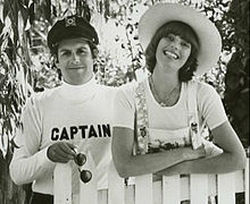 You knew it was coming! With SiriusXM's limited-run YachtRock channel burning up the airwaves, Yacht Rock hasn't been this popular since 1983. We're talking, of course, about the smooth sounds of Michael McDonald, Captain & Tennille, Christopher Cross, and other late 70s/early 80s soft rock giants. Music to chain-smoke to. Music to "not get civil rights" to. Music to play in the background while you spend idle days on a yacht. It's not necessarily music for the wealthy, but it is music for people who don't try very hard. Is Yacht Rock fascist? Of course! But don't make the mistake of conflating Yacht Rock and fascist music into one. Yacht Rock is a type of fascist music - and yes, all Yacht Rock is definitionally fascist - but doesn't represent the full breadth of fascist music. Fascist music includes post-prime rock by legacy artists, aggressively power-hungry music, selling out, corporate music, facelessness, suffocation, and more. Yacht Rock represents a great dimension of fascist music: the brown-stained, corporate, sinister, idle, daft music of the shittiest 10 years of the 20th century. But there's more. Enjoy the waning days of the YachtRock channel on SiriusXM. Then check back in with us to see what fresh hell we can get into. Thought experiment: It's 1985. Huey Lewis needs to tell you about this incredibly powerful thing. Stronger than diamonds, steel, money, fame, credit card, and a bad girl's dream. (Which, by the way, clever.) This force is sudden and cruel, and can make you sad and mad, but might just save your life. Oh, and he wants to discuss all this over horn-and-synth 80s serial-killer music. Would you say that this sounds remotely fascist to you?
Ah, the ludicrous stylings of Toto. As a preliminary matter, it's worth noting that the band itself is supremely fascist in concept and execution. With Toto (Latin for "total"), we have a collection of faceless Los Angeles-based "ace session musicians" who decided, amid the most fascist era in rock history (the late 1970s, which was so overwhelmingly oppressive that it gave rise to punk) to max out the corporate card. Toto's music is so self-evidently fascist that there's not much novel insight to share. The album art merits comment, however. First thing you notice: They like swords. On their eponymous 1977 album, the sword is exalted in space, framed by some kind of medieval family crest, and shrouded in purple steam. This album cover so completely hews to fascist principles that it seems to anticipate the existence of FASCISTMUSIC.com. (Side note: What was the space fascination in so many late-70s albums? No wonder two generations thought corporate rock was for losers. Millennials, of course, don't collect albums, so they can enjoy Journey's and Boston's tasty jams without the disqualifying images.)
The sword theme continues on their most popular album (the one with "Africa"), IV, and so does the enwreathment theme, with golden rings surrounding the sword against a blood-red background. If there's one thing a fascist likes as much as violence and oppression, it's golden rings. We feel the impulse to genuflect before this album cover. Don't you worry: There are swords on most of Toto's remaining albums, including its greatest hits packages. But I wanted to show some other sides to Toto. The "Africa" single initially seems like a refreshing blast of liberty, and in some ways it is. Look, it's the guys! Yes, it's nice to see some faces. But there are six of them, not a great sign (in toto, 45 souls have cycled through this "band"), and who knows who any of them are, and they look like Scarface extras. Still, that's the look of the era, so let's be generous. And look, Africa! They care, right? Well, let me stop you there. They blessed the rains down in Africa. Gods of a primitive continent, right? Is there another interpretation? And look at that "Africa" font, stamped like a C.A.R.E. package. We need to move on. Finally, we have Toto's sad 1999 effort -- aren't they all? -- Mindfields. This Matrix agent is peering into your mind, of course, and the world is warped, and all he sees in your mind are fields. There's some Asian writing for some reason. All this is disturbing, albeit in a stupid way. Toto is again trying to intimidate us with their fascism, and the fact that they fail does not detract from the darkness of their attempt. |
What is fascist music?In Dave Marsh's 1979 review of Queen's Jazz, he wrote, "Indeed, Queen may be the first truly fascist rock band." No other word so neatly expresses supremacy of the powerful and devaluation of the individual. Archives
August 2022
Categories
All
|
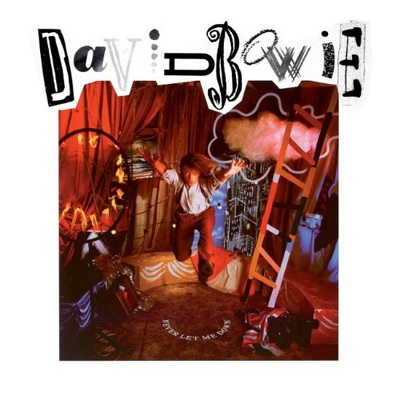
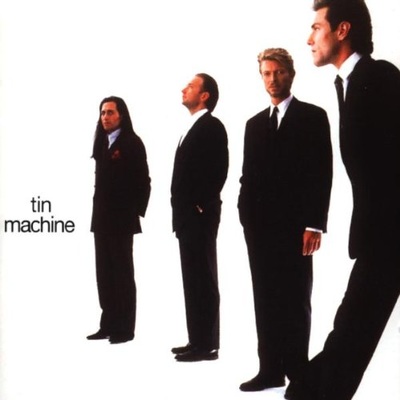
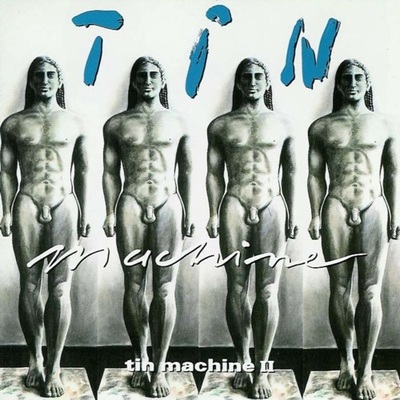
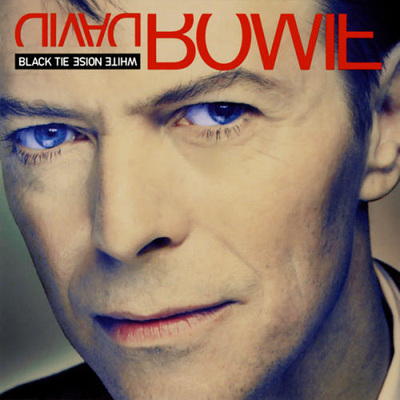
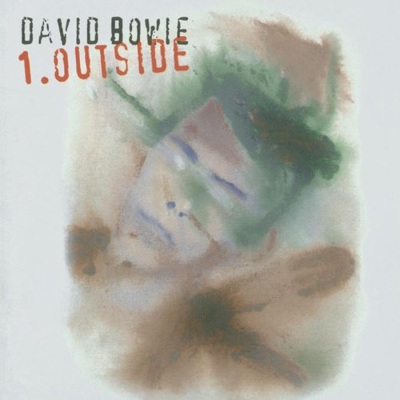
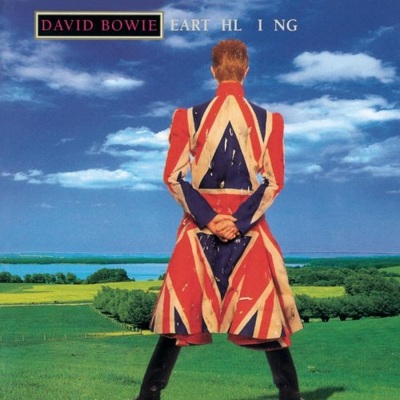
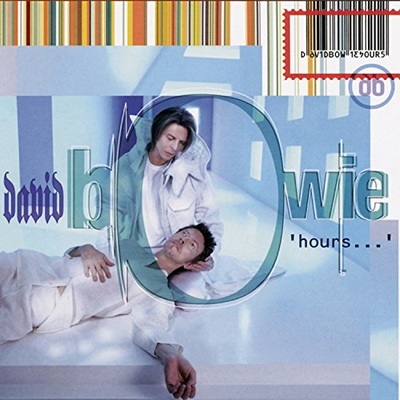
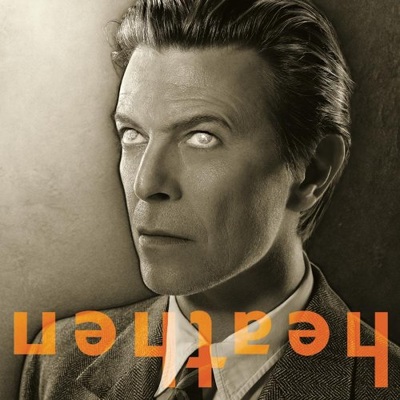
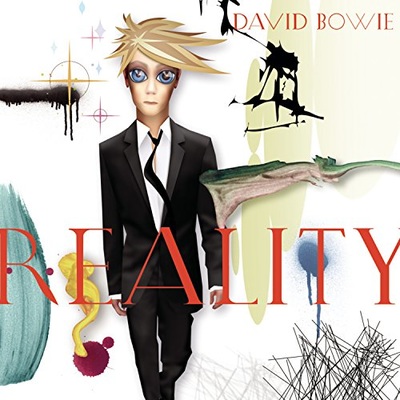
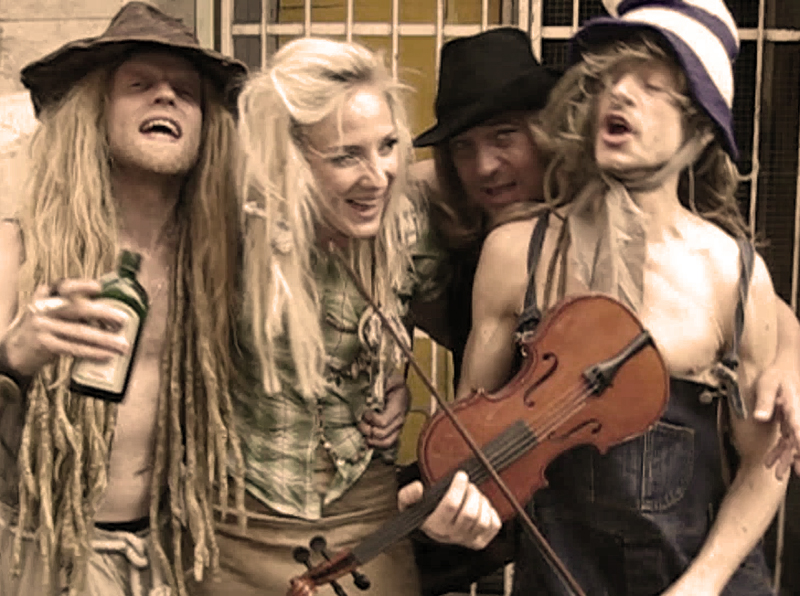
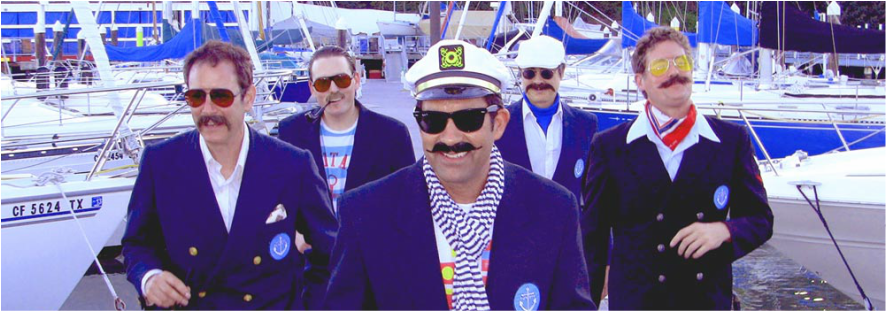

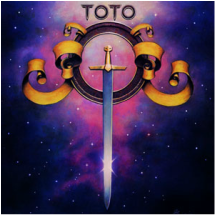
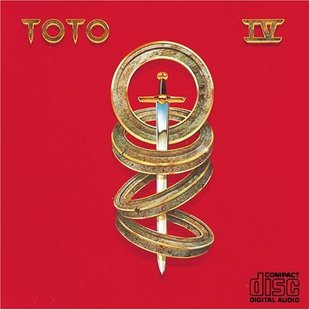
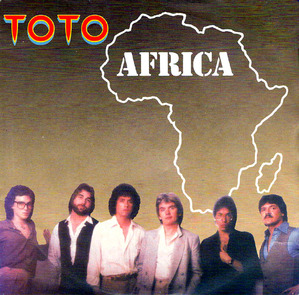

 RSS Feed
RSS Feed
